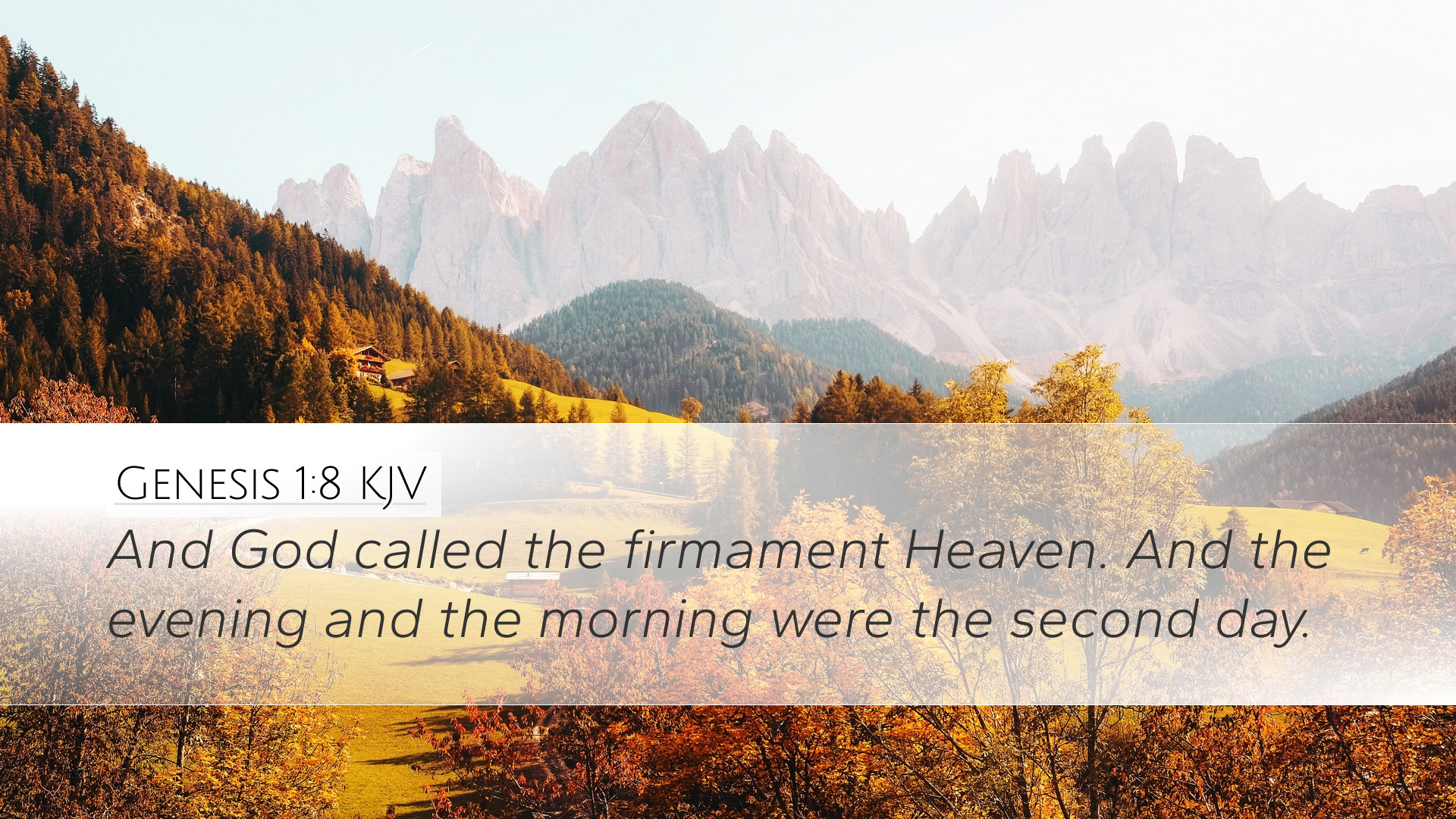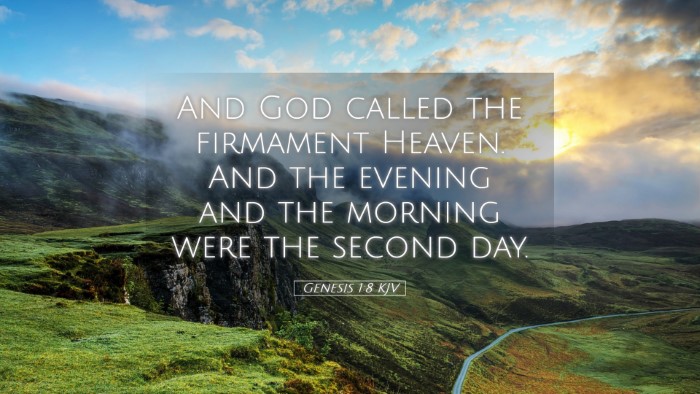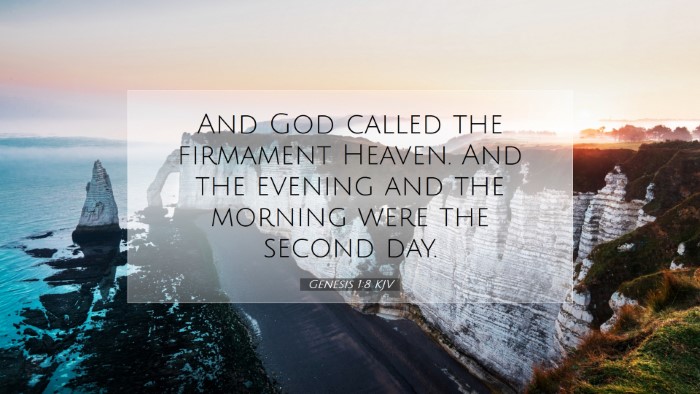Genesis 1:8 - Commentary
Verse Text: "And God called the firmament Heaven. And the evening and the morning were the second day."
Introduction
The account of creation is foundational to the Judeo-Christian understanding of the universe and humanity's place within it. Genesis 1:8 marks the conclusion of the second day of creation, emphasizing the establishment of the firmament, which serves as a divine boundary differentiating the waters above from those below.
Exegesis of Genesis 1:8
This verse succinctly reflects God's authority and order in creation. The firmament, described as "Heaven," plays a pivotal role in the cosmic order.
- Firmament Defined: The term "firmament" (Hebrew: רָקִיעַ, raqia) implies a vast expanse or canopy, and it denotes the sky that separates the atmospheric waters from the celestial realm.
- Theological Implication: By calling the firmament "Heaven," this naming indicates God’s dominion over all creation and establishes a heavenly realm that is sacred and distinct.
Insights from Commentators
Matthew Henry
Henry emphasizes that the firmament signifies a clear manifestation of divine glory. He notes that the heavens reveal God's power and creativity, serving as the backdrop for both celestial bodies and earthly events. Henry describes this naming as an act of authority, where God, having created, now denotes the purpose of His creation.
Albert Barnes
Barnes draws attention to the significance of the phrase "the evening and the morning." He links this to a divine order of time established by God, where each day has a structured beginning and end. In his view, this serves as a pattern for the worship and life of humanity, encapsulating the rhythm of work and rest.
Adam Clarke
Clarke provides a critical analysis of the term "Heaven." He notes that the firmament is not merely a physical boundary but an important spiritual concept connecting humanity with the divine. He suggests that the heavens serve to remind believers of God's transcendent nature, as well as His immanence in creation.
The Importance of Order in Creation
The act of naming the firmament and declaring it "Heaven" underlines the biblical theme of order within chaos. This serves as a comfort to believers, illustrating that God meticulously shapes creation. The established order reveals a God who is actively involved with creation and cares for it.
Spiritual and Practical Applications
- Understanding God’s Sovereignty: Through this verse, believers can reflect on God's authority over both the cosmos and their personal lives, encouraging a response of worship and reverence.
- Creation's Reflection of God: The heavens are a constant reminder of God's glory and power, prompting believers to contemplate the majesty of the Creator in their daily lives.
- Establishing a Rhythm of Life: The pattern of day and night established in this creation account invites believers to cultivate a lifestyle of balance, work, and rest akin to the rhythm dictated by God in the creation narrative.
Conclusion
Genesis 1:8 provides profound insights into the nature of God as Creator, the significance of creation, and the order that governs the universe. Through the commentaries of scholars such as Matthew Henry, Albert Barnes, and Adam Clarke, we gain a richer understanding of the text, urging us to appreciate the imprints of God's handiwork in the firmament of heaven.


